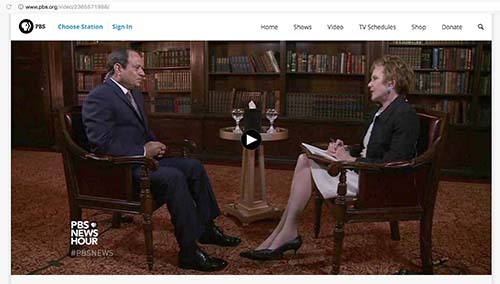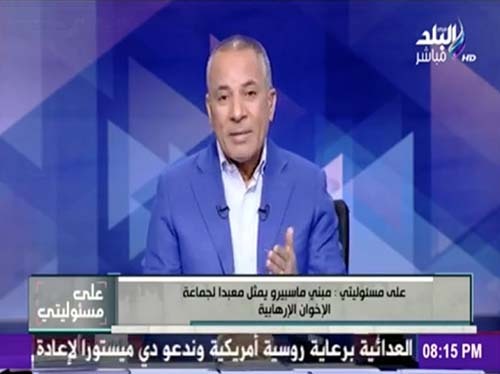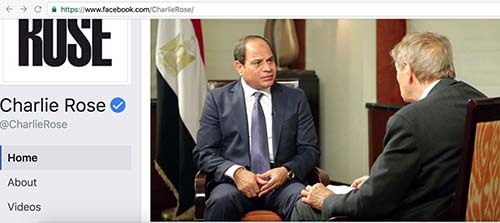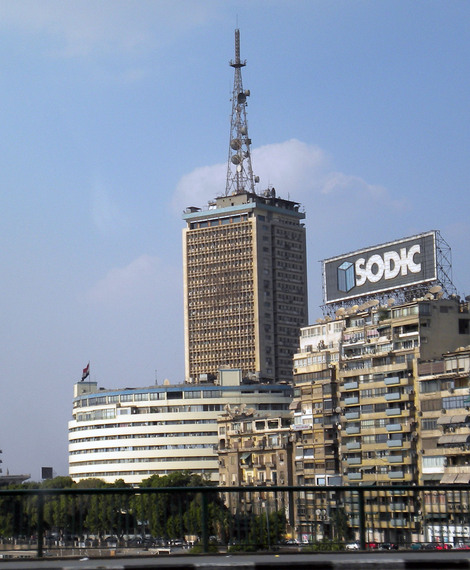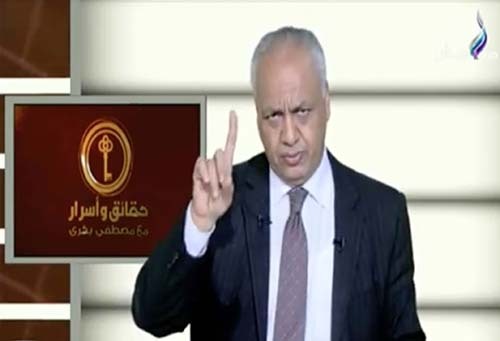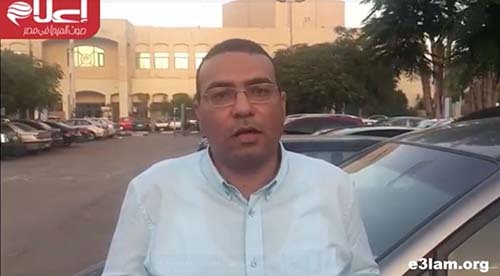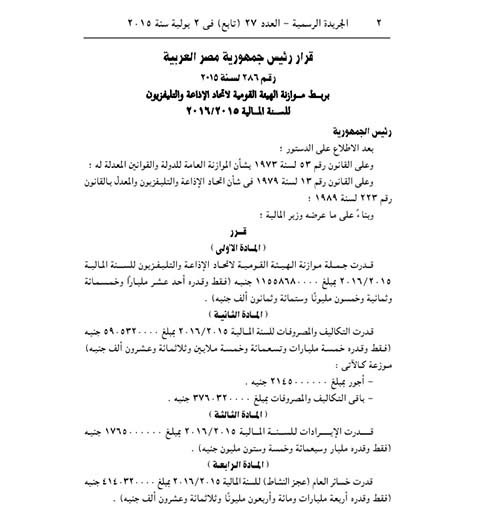Someone messed up on the job at Egyptian state-run TV and big heads began to roll.
The catastrophe: An employee aired an interview of President Abdel Fattah Al-Sisi with PBS' Margaret Warner dated September 28, 2015 when she should have broadcast a newer one with host Charlie Rose on September 19, 2016.
"What led to the earthquake at the TV's building yesterday, and is ongoing today, I must tell you, the phones haven't stopped ringing," said an agitated Ahmed Moussa, a talk show host on Sada Al Balad TV. "The building is a temple of the (outlawed) Muslim Brotherhood (MB)."
It wasn't the first time a major blunder was committed at Maspero, the iconic, dilapidated TV building on the street by the same name overlooking the Nile in Cairo housing the state-run broadcast operation.
Rose had interviewed Al-Sisi during the Egyptian president's visit to New York this month to speak at the United Nations General Assembly.
Moussa said there were countless patriotic Egyptians at Maspero, but also pockets of terrorists, and that engineers and technicians were the most dangerous among them.
No sooner was the broadcast error committed when the ax began to fall and sarcastic comments filled social media.
The head of the news division, Mostafa Shehata, who got the job just months ago, was summarily relieved of his duties.
Then came word Safaa Hegazi, the head of Egypt's Radio and TV Union, was instructed not to go to her office by the State Security apparatus, which would handle investigation of the matter.
Others were also hauled in to determine who was responsible for the gaffe.
Legislator-cum-journalist Mostafa Bakry, who hosts the "Facts and Secrets" program on Sada Al Balad and is a member of parliament's media committee, said Egyptian TV was a matter of national security and that nobody should besmirch its staffers' reputations, despite occasional slipups.
But he also jumped on the blame bandwagon, saying a campaign to cleanse Maspero was underway and that an emergency meeting of parliament's media committee had been scheduled to call for an investigation of the interview flop.
"There are MB elements inside Maspero that were appointed during the tenure of information minister Salah Abdel Maqsoud when the Brotherhood was in power, and others appointed prior to that, in addition to organizations that are enemies of the state like the 'April 6' movement and revolutionary socialists," he told Al Youm Al Sabeh newspaper.
Not so, Mhmd Abdel Rahman, the editor in chief of the Egyptian e3lam.org website
that specializes in all things media, told me, adding that if the Brotherhood had any real influence inside Maspero, it would have been directed at disseminating ideas and programs to agitate public opinion against the regime.
While admitting Maspero undoubtedly had MB members within staff ranks, Abdel Rahman disputed Bakry's contention they were in leadership positions.
"There's no exaggeration about how bad things are at Maspero," Abdel Rahman said. "The building is beyond internal reform, the current number of employees is 37,000, annual spending is huge and there's no income to compensate for it, and, its impact on the street is zero."
The fiscal year 2015-16 budget for state-run broadcast media is over 11.5 billion Egyptian Pounds (about $1 billion), close to 6 billion of which are expenditures, under 2 billion is revenue, and 4 billion a deficit.
The regime has diverted its attention to private TV channels and radio stations as undeclared government alternatives, to address Egyptian public opinion, Abdel Rahman added about the irreparable bloated state-run bureaucracy.
For Abeer Saady, former vice president of the Egyptian Journalists' Syndicate, anti-Maspero attacks following the latest disaster have raised concerns, notably the campaign by rich pro-regime businessmen aiming to hold sway over the media.
"The error occurred and requires an investigation and accountability, but the way public TV, that's supposedly owned by the people, was attacked is suspicious because it dovetails with the rise of pro-regime monopolies owned by businessmen," she said.
Saady added that firing the head of the news sector without further investigation gave a false impression of justice.
Critics have long claimed that in addition to being a financial bottomless pit, Maspero represents the ultimate in nepotism and cronyism, leading to a sharp drop in standards and prompting real professionals to jump ship to other local and pan-Arab media outlets.

